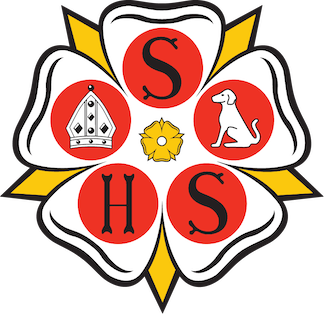Key Stage 5
KS5 History (Year 12-13)
“Just as history has made our world what it is, history can also be a key part of your future. Learn how studying history informs the present and gives you the skills you need to prepare for the future.
Apart from being very interesting, history is useful for a host of different careers, and life too! In fact, history is very practical and teaches you vital skills that employers want, because it involves:
● Learning about people – how they interact, differing perspectives and interpretations, the motives and emotions that can tear people apart into rival factions or help them to work together for a common cause (useful knowledge for team-building at work!)
● Learning to locate and sift facts – In today’s internet-based, information overloaded world, employers really appreciate someone who
can sift through the evidence to find the vital information – a skill that history is better placed than any other subject to help you develop.
● Handling evidence to make informed decisions – to identify truth and recognise myth, propaganda and downright lies (useful in every aspect of life!)
● Communicating your ideas and thoughts in a way that makes sense to others – whether that be verbally or in essays, graphs or illustrated reports – and having the confidence to defend your findings. These skills are vital for arguments and presentations in a range of careers.
● Learning about countries, societies and cultures – so many of today’s conflicts and alliances have their roots in the past; how can you understand, trade successfully with, or report on a country if you know nothing of its culture or history?” - The Historical Association
At Sherburn High School, students study the Edexcel specification and cover the following themes:
Paper 1, Breadth study with interpretations
● Option 1E: Russia, 1917-91: from Lenin to Yeltsin
Skills assessed: Knowledge and understanding and use of interpretations. Assessed by a written examination: 2 hours 15 minutes. 60 marks. 30% of the qualification.
Paper 2, Depth study
● Option 2E.1: Mao’s China, 1949-76
Skills assessed: Knowledge and understanding and use of sources. Assessed by a written examination: 1 hour 30 minutes. 40 marks. 20% of the qualification.
The options in Route E are linked by the theme of communism, one of the most significant ideologies of the twentieth century. Communism directly affected the lives of millions of people who lived under communist rule, but it also had indirect effects on countless others around the world.
Studying two different countries allows students to develop a greater understanding of the nature of communist rule and the similarities and contrasts between them (although students aren’t required to compare the options)
Paper 3, Themes in breadth with aspects in depth
● Option 30: Lancastrians, Yorkists and Henry VII, 1399-1509
Skills assessed: Knowledge and understanding and use of sources. Assessed by a written examination: 2 hour 15 minutes. 60 marks. 30% of the qualification.
The aspects in breadth looking at long term changes and aspects in depth focusing on key episodes explore dramatic developments in late medieval England. The period centred around the personalities and political skills of a series of kings, queens and their powerful subjects, and the impact of these developments on the kingdom. Within the primarily political focus on the nature of kingship and authority in England, this option also explores the wider social and economic contexts of political struggle.
Non examined assessment: Coursework
Skills assessed: Knowledge and understanding and use of interpretations. Assessed by 3,000-4,000 word assignment independently researched by students. 40 marks. 20% of the qualification.
The coursework enables students to develop the skills in the analysis and evaluation of interpretations of history in a chosen question, problem or issue as part of an independently researched assignment. The focus is on understanding the nature and purpose of the work of the historian. Students will be required to form a critical view based on relevant reading on the question, problem or issue. They will also be specifically required to analyse, explain and evaluate the interpretations of three historians.
Past papers and other materials can be found here –
https://qualifications.pearson.com/en/qualifications/edexcel-a-levels/history-2015.html
If you require any further information about the KS5 curriculum, please contact Ms Kesterton (Curriculum Leader: History)
